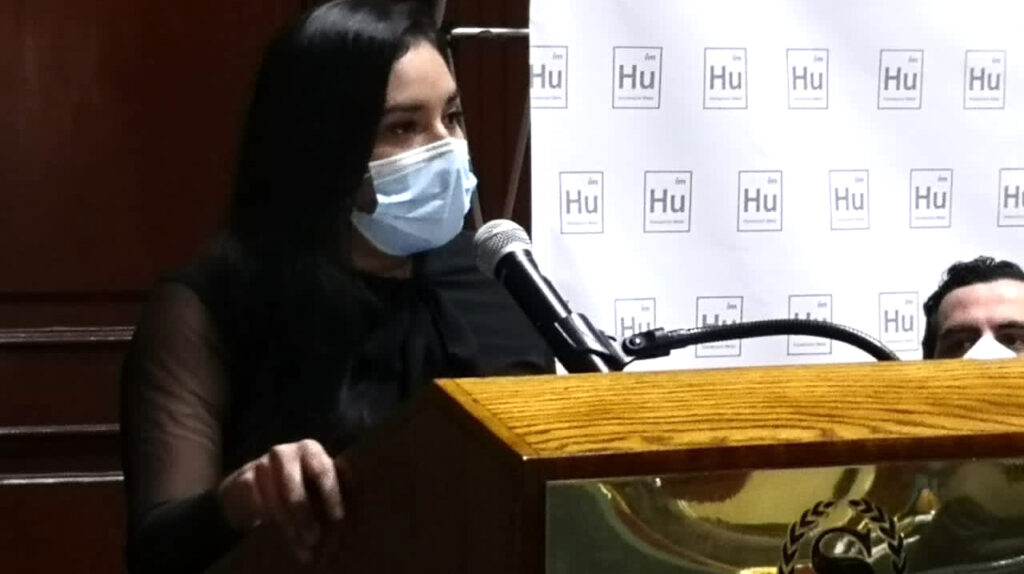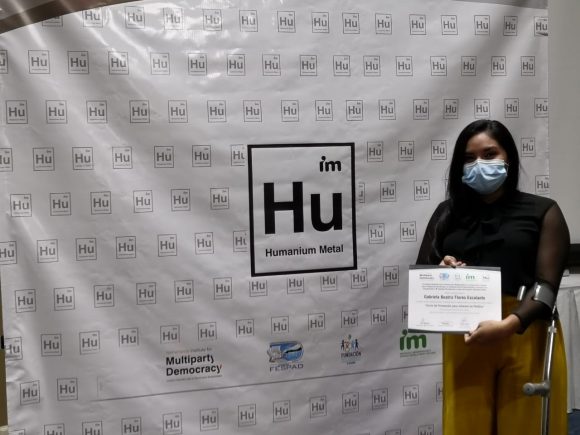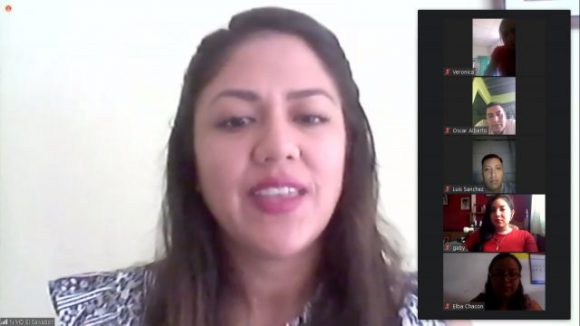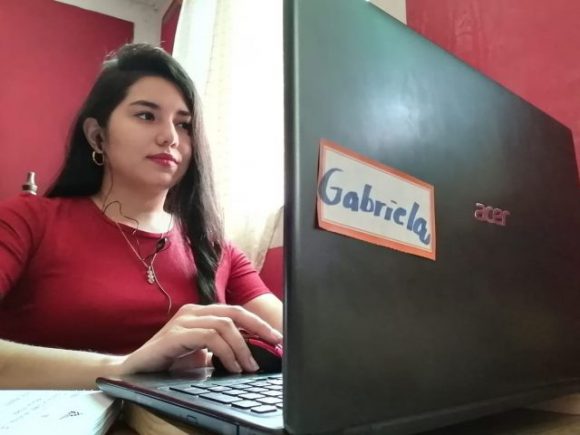Interview: NIMD’s Democracy School for young people living with disabilities

Every year, on 3 December, we celebrate the UN International Day of Persons with Disabilities, a day designed to promote the full and equal participation of people living with disabilities.
To mark this day, we talk to Gabriela Escalante, a promising graduate of our Democracy School for young people living with disabilities, which we run in coordination with the Fundación Red de Sobrevivientes y Personas con Discapacidad (Network of survivors and people with disabilities foundation), the Fundación de Estudios para la Aplicación del Derecho (Foundation of studies for legal implementation) and IM Swedish Development Partner.
Do you think the Democracy School for young people living with disabilities is relevant? Why?
Training for people living with disabilities is important for social inclusion and political participation for three reasons:
Resilience. Through intellectual growth, we realized that we can participate in society, and we put aside the doubts that held us back.
Self-confidence. The training significantly improved our perception of ourselves. It helped us to replace our fears with confidence.
Representation. The training gave us knowledge and skills, but also the confidence to listen, handle a subject and direct our ideas, without allowing others to patronize us. This means that others also have confidence in us, to the point of feeling represented by us.
Has taking part in the School changed the way you approach things?
I think the most noticeable change, which even my family has commented on, is that I feel empowered. I feel more confident to voice my opinion, but I also have more patience to listen to and understand others. I am no longer shy to talk about politics, and create and defend ways of thinking. And I have more confidence to overcome situations at home and try to see problems from a different perspective. It’s funny – one time I even used one of the exercises from the Democracy School to solve a problem.
How have you used what you have learned?
The empowerment I feel has led to concrete results. A group of young people from the course and I decided to create an association to help and support other young people living with disabilities, and their families. We each use our different skills within the organization – so we have lawyers, journalists, psychologists, athletes and teachers. My specialism is in orthotics/prosthetics.
The Democracy School course gave us the foundation on which we have built our association. It allowed us to open up our options beyond what we had considered in the past. Now, I believe that I can do anything. I can build my career; I can have a decision-making role. And, one day, I can look out for people with disabilities, and the population in general, from within the Legislative Assembly.
Indeed, my personal ambition is to be elected to the Legislative Assembly. The course has given me the tools to have more of an influence in politics and enter decision-making spaces.
We only needed someone to believe in us. And NIMD and its partners did that.
The NIMD Democracy School for young people living with disabilities in El Salvador has placed its faith and confidence in the young people of our country. To me, the remarkable thing is that the school shows others, and even us as participants in the training, that we have the right and skills to become involved in politics, regardless of our age, where we live or our disability.

About NIMD’s Democracy School for young people living with disabilities in El Salvador
The school for young people living with disabilities is just one of NIMD’s Democracy School courses, where both established and aspiring politicians come together and learn democratic values. By teaching established and future leaders skills such as how to speak, listen and debate with mutual respect, we help the next generation to put their political values into practice in line with needs of their country.
Our school for young people living with disabilities also aims to empower a group of people who may face barriers to political participation, both as young people and people living with disabilities. By providing a space where they can build a network of other young people from across the political spectrum, and the chance to pick up new knowledge and skills, we hope to help the participants to break down these barriers.

